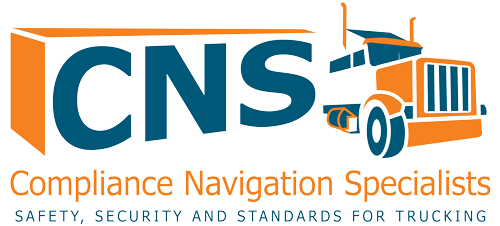Breaking Down the AMERICA DRIVES Act: What Autonomous Trucking Exemptions Mean for the Future of Freight

With hopes to reshape the future of the American freight industry, Congressman Vince Fong (CA-20) introduced legislation aiming to provide an obvious exemption of traditional driver drug testing and Hours-of-Service (HOS) rules for fully autonomous trucks.
Simply, the AMERICA DRIVES Act (Autonomous Mobility Ensuring Regulation, Innovation, Commerce, and Advancement Driving Reliability in Vehicle Efficiency and Safety Act) lays the groundwork for a unified national policy to govern driverless trucking—offering clear exemptions and a path toward widespread AV adoption in logistics.
Let’s break down what’s in this bill, why it matters, and how it could benefit your fleet, your supply chain, and the industry at large.
What Does the AMERICA DRIVES Act Propose?
Rep. Fong’s AMERICA DRIVES Act is a direct response to two growing issues:
- The patchwork of conflicting state laws that restrict or confuse autonomous vehicle (AV) deployment.
- The driver shortage—expected to surpass 160,000 drivers by 2030.
Here’s what the bill aims to accomplish:
1. Establish a Federal Framework for AV Trucking
- Preempts conflicting state laws that require human drivers in Level 4 or 5 autonomous trucks.
- Aligns federal definitions and standards with the Society of Automotive Engineers (SAE) criteria for automated driving systems (ADS).
- Allows interstate testing and deployment of fully driverless trucks (no human or remote operator onboard).
2. Exempt AVs From “Human-Specific Requirements”
- Directs the FMCSA to update rules by 2027 to recognize fully autonomous trucks.
- Codifies FMCSA’s 2018 interpretation that a “driver” doesn’t have to be human.
- Exempts driverless trucks from human-focused regulations such as:
- Hours-of-Service (HOS) limits
- Drug and alcohol testing
- Medical qualifications
3. Approves Tech-Driven Safety Equipment
- Legalizes the use of a flashing, cab-mounted warning beacon in place of reflective triangles for disabled trucks—supporting modern safety practices aligned with autonomous technology.
Why Exempting AVs from Traditional Driver Rules Matters
Current driver rules, like HOS and drug testing, are designed to prevent human fatigue and improve road safety. But a machine doesn’t get tired, drunk, or drowsy. By lifting these limitations:
- AV trucks can operate 24/7 with minimal downtime, significantly increasing productivity.
- Transit times shrink, reducing shipping costs and bolstering just-in-time logistics.
- Fleets can reposition drivers to other key roles that require human judgment and communication.
While many truck drivers view autonomous vehicle (AV) trucking as a threat to their livelihoods, the FMCSA and lawmakers are likely to continue pushing for AV adoption because of its potential to solve persistent industry challenges—namely, the growing driver shortage, supply chain inefficiencies, and safety concerns tied to human error.
Remember, the Department of Transportation wants to reduce the 40,000 fatalities in vehicle accidents each year to as near as zero as possible.
From the FMCSA’s perspective, AVs offer a consistent, fatigue-free alternative that can reduce crashes and allow freight to move 24/7 without violating Hours-of-Service rules. Lawmakers see the opportunity to modernize infrastructure, boost economic competitiveness, and reduce logistical bottlenecks.
Understandably, drivers fear being replaced or devalued, but AV trucking should be seen as a complement, not a replacement. Fully autonomous trucks will likely handle long-haul or monotonous routes, while human drivers shift into regional, last-mile, or more specialized jobs that require judgment, communication, and customer interaction.
As the technology matures, drivers who embrace and upskill alongside AV systems could secure higher-paying, tech-integrated roles—turning disruption into opportunity.
Here’s why autonomous trucking is seen to be safer than human driving.
The Safety and Efficiency Benefits of AV Trucks
Recent data from TuSimple, a global AV trucking company, highlights the performance of autonomous systems compared to human-operated trucks:
| Event Type | TuSimple AVs (Events/100 miles) | Human-Operated Trucks (Events/100 miles) |
| Harsh Braking | 0.00 – 0.02 | 0.08 – 0.10 |
| Hard Acceleration | 0.11 – 0.16 | 0.99 – 1.06 |
| Harsh Cornering | 0.04 – 0.10 | 1.18 – 1.89 |
These results suggest AVs are significantly safer, reducing the risk of crashes linked to aggressive or distracted driving.
In addition, AVs:
- Consume 10% less fuel than traditional trucks.
- Can operate effectively in a wide range of conditions (e.g., rain, night, extreme heat).
- Maintain consistent driving behavior, supporting tire and brake longevity and reducing maintenance costs.
But What About Safety When an AV Truck Breaks Down?
FMCSA is actively conducting research on modern warning devices that support AV technology. A new study, using eye-tracking and GPS tools, is analyzing the effectiveness of alternative warning systems—like cab-mounted flashing beacons—to replace traditional triangles or flares.
As part of the AMERICA DRIVES Act, using these tech-based warning solutions would become federally accepted, allowing autonomous trucks to remain compliant in emergencies.
Next Steps: What Fleets and Carriers Should Watch For
- FMCSA rule updates are expected by 2027. Fleets should track how exemptions are implemented and what safety technology will be required in lieu of human-based procedures.
- State restrictions may be preempted, opening the door to coast-to-coast AV freight lanes.
- Autonomous partnerships will become more attractive to early adopters and innovative 3PLs.
Proactive Compliance: Your Competitive Edge
At CNS, we’re helping fleets prepare for any safety regulations with our Proactive Safety Management® (PSM) Program. Whether you’re using human drivers or preparing for an autonomous future, your fleet needs:
- Robust Driver Qualification File Management
- Real-time ELD Data & CSA Score Analysis
- Policy and Handbook updates to match evolving FMCSA rules
- Audit readiness and DOT safety support
Want to know more about a custom PSM program? Fill out the form below or learn more here.
Questions about DOT Compliance, Licensing, Audits, Programs, etc.?
Our DOT Specialists are here to help!
What are you searching for?
Is DOT Compliance your Top Priority?
Our DOT Compliance Programs ensure it is your top priority and keeps your business running.
Related Services
Subscribe to our Monthly Newsletter
Receive the latest transportation and trucking industry information about FMCSA and DOT Audits, Regulations, etc.
Related news
Trucking News
Get the latest trucking news on DOT Compliance, Licensing, Audits, and more!

New Law Codifies English Language Proficiency as an Out-of-Service Violation
On February 4, 2026, President Trump signed into law a federal funding bill that not only ended a partial government shutdown but also delivered several

Why Outdated Safety-Sensitive Employee Policies Put Your Business at Risk — and How to Fix Them
What to Review, What to Change, and Why Partnering With CNS Matters As a new year begins, businesses with safety-sensitive employees—including trucking companies, construction firms,

Deregulation or Disruption? Inside the FMCSA Rule Changes That Could Reshape Trucking in 2026
A Practical Breakdown of New FMCSA Rules in 2026: What’s Changing, What’s Slowing Down, and What Fleets Should Prepare For From a government shutdown to
